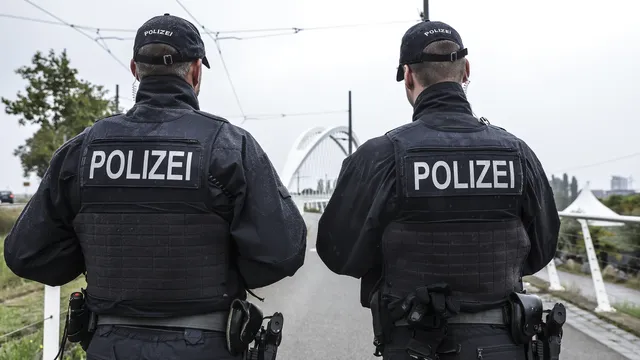A coordinated operation by the European Public Prosecutor's Office has dealt a blow to a criminal network flooding the European Union with counterfeit Chinese goods. It was carried out in Athens, Madrid, Paris, and Sofia.
The criminal scheme, involving large imports of textiles, shoes, electric scooters, electric bicycles, and other products, caused damages of approximately €700 million. Customs duties and VAT were evaded.
The investigation, called “Calypso,” covers 14 countries: Bulgaria, China, the Czech Republic, Denmark, France, Germany, Greece, Hungary, Italy, Poland, Portugal, Slovakia, Slovenia, and Spain. A total of 101 searches were carried out as part of the operation in the offices of intermediaries, companies controlled by organised crime groups, the premises of suspects, as well as in the offices of tax consultants, lawyers, accountants and transport companies in Bulgaria, Greece, France and Spain. Ten people were arrested, including two customs officers. Firearms and cold weapons were found and seized in the homes of three suspects.
Law enforcement authorities seized a total of €5.8 million in various currencies (€4.75 million in Greece and the rest in France and Spain), including Hong Kong dollars, euros in digital wallets, and cryptocurrencies. In addition, 7,133 electric bicycles, 3,696 electric scooters, and 480 containers were confiscated for further inspection at the port of Piraeus. In Spain, 11 properties, 27 cars, and luxury goods such as handbags, watches, and jewelry were seized. In Greece, orders were issued to freeze real estate, boats, and bank accounts.
The main drivers of the scheme are criminal networks, mainly controlled by Chinese nationals, who manage the entire process – from importing the goods into the EU, distributing them to various Member States, selling them to end consumers, to laundering the money and sending the profits back to China, all with the aim of evading customs duties and VAT.
The goods are mainly imported through the port of Piraeus, with their value being understated or incorrectly classified in order to avoid customs duties – using false documents that conceal the true value and nature of the goods. A network of professional intermediaries – customs brokers, accounting and other firms – assist with the initial customs clearance, with the goods being recorded as purchased and transported by companies registered in Bulgaria but operating in Greece with Greek VAT numbers.
The goods are then sold to companies in other Member States, allowing the initial “purchaser” to benefit from VAT exemption on importation under customs procedure 42 (CP42). This procedure, designed to simplify cross-border trade, exempts importers from paying VAT in the country of import if the goods are subsequently transported to another Member State.
Through a chain of shell companies, the goods are declared as sold to countries such as Bulgaria, the Czech Republic, Denmark, Germany, Hungary, Italy, Slovakia, Slovenia, and Spain—which, however, never receive the goods. They act as “missing traders,” avoiding VAT payments. In some cases, the identities and tax numbers of legitimate companies are used to conceal the true destination.
In fact, the goods are stored in warehouses controlled by criminal groups and from there, with false documents, are transported to France, Italy, Poland, Portugal, and Spain—the real markets for sale. These logistics centers function as strictly controlled “closed” communities, accessible only to members of criminal groups.
Transport documents are destroyed immediately after delivery, and the goods are sold on the black market, mainly in cash, within a well-hidden parallel economy.
Criminal organizations have created false invoices and transport documents and organized a network of fictitious companies that “sell” and “deliver” the goods to cover up the entire chain of fraud. This allows sales to be made at competitive prices, as VAT is not paid and customs duties and anti-dumping duties are avoided.
Profits are transferred back to China through various money laundering schemes, including illegal banking systems based on commercial transactions. In this way, criminal groups control and cover up the entire criminal chain – from initial importation and VAT fraud, through sales, to the laundering of profits.
The total damage caused by these criminal networks is estimated at around €700 million – over €250 million in avoided customs duties (which go entirely to the EU budget) and nearly €450 million is unpaid VAT (which damages both the EU budget and the national budgets of Member States). The damage is likely to be even greater, as the Greek Independent Tax Administration (AADE) continues to assist in assessing the losses. | BGNES

 Breaking news
Breaking news
 Europe
Europe
 Bulgaria
Bulgaria







